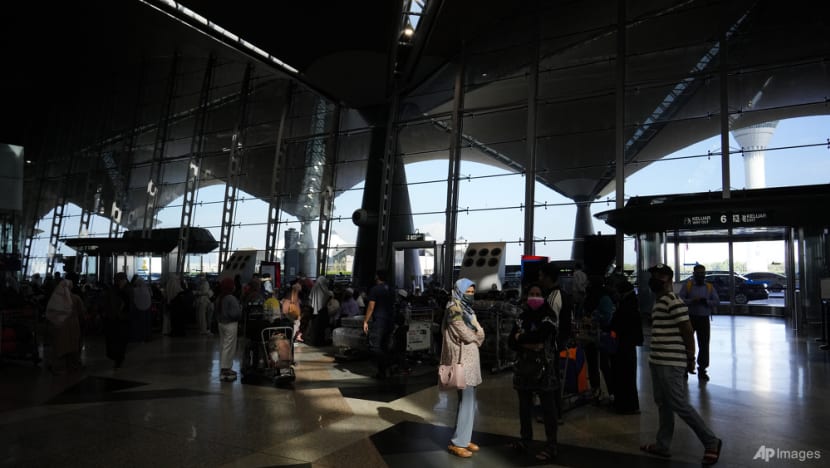Malaysia prepared to impose stricter border measures amid COVID-19 outbreak in China

Travelers line up at check in counter at Kuala Lumpur International Airport in Sepang, Malaysia, Friday, April 1, 2022. (File photo: AP/Vincent Thian)
KUALA LUMPUR: Malaysia's health ministry (MOH) is prepared to tighten health checks as part of its pandemic border policies, with the resurgence of COVID-19 cases in China.
Health Minister Dr Zaliha Mustafa said her ministry was taking seriously the concerns of people regarding the increase in COVID-19 cases in China, as well as restrictions imposed by several countries on travellers from Beijing.
“It will be implemented if necessary, not only on visitors or travellers (Malaysians and non-citizens) arriving from China but also from other countries," she said in a statement on Monday (Jan 2).
“The ministry will step up the methods of containing the spread of the COVID-19 infection in the country as well as preparedness to face any possible increase in cases of the epidemic."
Dr Zaliha also said that based on information reported to the World Health Organization, variants and subvariants in China have been detected in Malaysia.
Health director-general Dr Noor Hisham Abdullah said these were the two main COVID-19 variants spreading rapidly in China - BA.5.2 and BF.7 - which have accounted for almost 80 per cent of strains found in the country.
Dr Zaliha added that Malaysia would be receiving bivalent COVID-19 vaccine supplies soon, as she urged more people - especially high-risk individuals - to get their booster shots.
Currently, 49.8 per cent of Malaysians have received their first booster doses and 1.9 per cent have taken their second.
Dr Noor Hisham also said in a statement on Monday that sewage samples were being taken from aircrafts from China twice weekly.
COVID-19 environmental surveillance using sewage water conducted between June and Dec 31 last year showed that 96.5 per cent or 28 out of 29 samples taken from international entry points contained the presence of the Omicron variant.
In the same period, the National Public Health Laboratory also received 301 samples from 15 locations representing each state in Malaysia.
Of these, 288 samples (95.7 per cent) showed presence of the original COVID-19 virus and Omicron variant.
Dr Noor Hisham said detecting COVID-19 in sewage water samples provided early warning by allowing authorities to get an idea of virus density trends, to identify variants in the community and to monitor the effectiveness of intervention controls.















